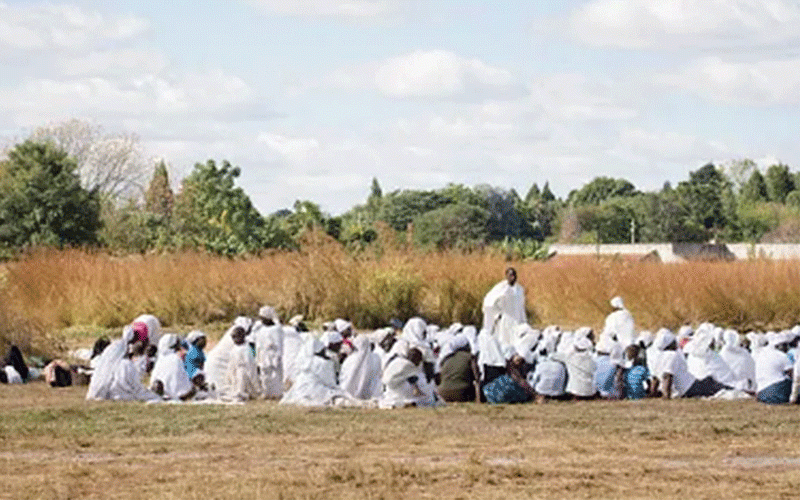
As artists, we are called to be conscious of the power of being aware of the constitution and different policy contexts, which can play a role in understanding the various ways which can facilitate the growth of the arts industry.
The National Arts, Culture and Heritage Policy is consistent with the Constitution of Zimbabwe and aspirations of the people. It also strives to be consistent with the African Union Charter on Cultural Renaissance and Aspiration number 5 of the African Union’s Agenda 2063 among other international Conventions, Protocols and Agreements that the Zimbabwe Government is party to.
As creatives, it is our cultural identity that constitutes the bedrock of all our undertakings and aspirations at individual, family, community and national levels. To this end, culture matters. It defines our unities, moral parameters, our vision and goals as a united family of Zimbabweans and enhances us to also promote and export our art internationally.
Unfortunately many artists plagiarise other people’s cultures and their artistic aesthetics. In music, we want to sound like the Americans, South Africans and Nigerians which makes me rhetorically ask where the Zimbabwean sound is?
In film, we have a non flourishing industry where the acting mimics also portray far fetched realities. Are we not proud or aligned with our culture?
We seem to shy away from having a deeper understanding of the issues that relate to culture and heritage.
Understanding these issues enhances the capacity of the local arts scene to create and also curate content that is exportable to a wider and more international audience, overlooking the limits of local crowds which seldom pay for the artist’s shows or art exhibitions.
It is our indigenous cultures that shape, foster and define us in terms of ancestry, language, values, religious beliefs and practices, customs, culinary skills and arts, institutions, indigenous knowledge, and our interactions with others and the environment.
- Chashe Band seeks fame via Chibuku
- In the groove: Did hicc concert mark end of sungura?
- Curtain finally comes down on Chibuku Road to Fame
- In the groove: How to avoid poor attendances at concerts
Keep Reading
For artists, it is important to be aware of the National Arts, Culture and Heritage policy of Zimbabwe which reminds the present and future generations of our broadest values, preferences, commonalities and aspirations that keep us together as an African people.
In addition, for the creative sector it will help to enhance cohesion and balance in most of our endeavors as individuals, families, communities, leaders, custodians, institutions, organisations, associations and government, including shaping our intra-and interpersonal relationships at local, regional and international levels.
This is what the essence of being an artist bridging the gaps within the community is about. Art is an umbilical cord that ties and binds the community and every artist represents their community and the culture of that community. Every artist is the courier of their community’s heritage and history.
As artists, we are continuing in the path of retelling the stories from the past or those of the ancient, which makes them, be sources of history and heritage and selling an African unfiltered story.
Unfortunately for many artists or creatives in Zimbabwe, they filter their artistic stories to an extent that it sounds un-original and highly plagiarized.
The National Arts, Culture and Heritage Policy affirms the aspirations, ideals and values of Zimbabweans through mainstreaming their cultural and creative industries within the education and all developmental programmes of the nation.
Artists henceforth fit in the cultural and the creative industries because already this is descriptive of the arts. There is also the need for the relevant ministries within the government to also create an enabling environment that will help the effective growth and development of the artists.
We are at a time when there is a need to co-ordinate, facilitate, fund, create and develop programmes that enhance the safeguarding of our tangible and intangible cultural and natural heritage.
This in turn will become the panacea that will help our art grow and in the process create a tangible industry where art can be viable as a means of livelihood.
Accordingly, the policy seeks to inculcate and reinforce the concept of Ubuntu/Unhu especially its embedded virtues of inter alia mutual respect, mutual social responsibility, mutual assistance, mutual trust, mutual social accountability, hard work, integrity, unselfishness and sharing.
Ubuntu/Unhu collectively urges every Zimbabwean to safeguard and uphold the significance of each and every human being and for all Zimbabweans of all walks of life to consider each other as social beings, in addition to taking care of their environment and natural heritage, and further to develop a positive self-esteem so that Zimbabwe can intrinsically re-invent itself.
In the process, the policy will cause the radiation of Zimbabwean ideals and values from homes, through to schools, local communities and larger arms of government and private institutions.
As artists we can penetrate every sphere and at times it is about taking action and also putting a premise on the issues of accountability. In the management of the Zimbabwean arts, I critique the top down approach which has in a great many cases disadvantaged the artists.
There are many talented artists out there with the capacity to export the vast expanse of Zimbabwe’s cultural diversity and heritage but those opportunities they never see.
They take the similitude of the small fish among sharks and this disadvantages the up and coming crop of artists who may be bringing in new ideas and synergies with regard to music and forms of expressivity. Hence there is the need for new and raw creative approaches based on meritocracy which can help propel talent that exports the local culture and heritage.
Apart from our God-given natural resources, the new policy recognises that the best asset that our country is endowed with are its hardworking people who always strive to improve their livelihoods by using the country’s educational facilities, nurturing and maximising on their various God-given talents to economically empower themselves and their families.
In addition to recognising these, and through linkages with other ministries, public and private institutions, local communities and traditional leadership, the policy envisages creating an enabling environment that encourages participation of all stake-holders in promoting and safeguarding Zimbabwean indigenous languages, culture, heritage and Zimbabwean creative arts.
In as much as we have an idea of the policy with regard to the arts, my food for thought is are artists really benefiting from this policy with regard to the promotion of culture and heritage? Are we exporting enough artists who are showcasing our culture to the world? Are we remaining stuck in the bureaucratic systems from the past?
It is imperative that artists remain educated and aware of the policy context and how it can correlate to the arts as it can help elevate new artists and bridge the gaps associated with exporting Zimbabwean culture to the world.
- Raymond Millagre Langa is a musician, poet, orator, independent researcher and founder of Indebo edutainment Trust. You can follow him on Facebook @Millagre Ray Langa, on X you can follow on #Millagre Langa, email. [email protected] or [email protected].










